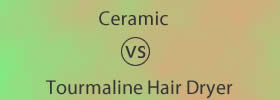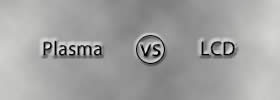Difference between Loose Motion and Diarrhoea
Key difference: The terms Loose Motion and Diarrhoea are commonly used interchangeably. A loose motion is nothing more than a loose stool. This is when, the feces is loose, liquidly, or watery than normal. Diarrhea is the condition of having at least three loose motions each day.
 The terms Loose Motion and Diarrhoea are commonly used interchangeably. There is a sound reasoning behind that. While, technically they are not exactly the same, they are so interrelated and in common parlance, they have come to mean the same thing.
The terms Loose Motion and Diarrhoea are commonly used interchangeably. There is a sound reasoning behind that. While, technically they are not exactly the same, they are so interrelated and in common parlance, they have come to mean the same thing.
Loose Motion, basically refers, to the condition of the stool. The process of defecating, or passing stool, is informally known as a motion. Hence, a loose motion is nothing more than a loose stool. This is when, the feces is loose, liquidly, or watery than normal. Loose motion is quite common and is usually not a cause for concern.
Having a loose motion may occur for a variety of reasons, the most common of which is if a person eats something that does not agree with them, resulting in an upset stomach. Alternately, it could also be a symptom of something else, where an infection or something more serious.
Having a loose motion is usually not a cause for concern. In fact, it is quite common for the body to have loose motions once in a while. However, it does become a concern, if it continues to occur. If a person has three or more loose or liquid bowel movements each day, then it can be categorized as Diarrhoea, also spelled as Diarrhea.
 Simply put, Diarrhea is when one has the loose motions, officially more than three times a day, whereas loose motion can be just a one of thing. It can also be said that loose motions is one of the symptoms of diarrhea. In addition to loose motions, it can also incorporate bloating, cramps, nausea, vomiting, etc.
Simply put, Diarrhea is when one has the loose motions, officially more than three times a day, whereas loose motion can be just a one of thing. It can also be said that loose motions is one of the symptoms of diarrhea. In addition to loose motions, it can also incorporate bloating, cramps, nausea, vomiting, etc.
Usually having diarrhea is not a concern, and it often remedies itself on its own. It is commonly caused by something the person may have eaten, or it may even be an infection of some kind. If it lasts more than three days, or if there is more than three loose motions a day, or if there is blood or mucus in the stool, then it is recommended that the person see a doctor. Otherwise, it is generally acceptable to use home remedies or ever over the counter medication to treat the diarhoea.
Comparison between Loose Motion and Diarrhoea:
|
|
Loose Motion |
Diarrhoea |
|
Definition (Oxford Dictionaries) |
(of faeces) containing excessive liquid. ‘loose bowel movements’ |
A condition in which faeces are discharged from the bowels frequently and in a liquid form. |
|
Description |
Loose Motion is a condition in which the person has a loose or liquid bowel movement. |
Diarrhea is the condition of having at least three loose or liquid bowel movements each day. |
|
Symptoms |
Thin or loose stools Watery stools An urgent feeling to have a bowel movement Bloating in the belly Cramps
|
Bloating in the belly Cramps Thin or loose stools Watery stools An urgent feeling to have a bowel movement Nausea and throwing up |
|
Serious Symptoms |
Blood or mucus in the stool More than 3 times a day Lasts longer than 2 days
|
Blood or mucus in the stool Weight loss Fever Nausea Severe pain in the abdomen or rectum Diarrhea after coming back from a foreign country Dark urine Smaller than usual amounts of urine or fewer wet diapers than usual in a child Rapid heart rate Headaches Dry skin Irritability Confusion |
|
Causes |
Upset stomach Infection Food allergies Indigestion Medication Eating or drinking certain types of food |
A viral infection Alcohol abuse Allergies to certain foods Diabetes Diseases of the intestines Eating foods that upset the digestive system Infection by bacteria or other organisms Laxative abuse Medications Overactive thyroid (hyperthyroidism) Radiation therapy Running Some cancers Surgery on the digestive system Trouble absorbing certain nutrients, also called “malabsorption” |
|
Affects |
The stomach or intestines |
The stomach or intestines. |
|
Treatment |
Home Remedies Drinking Fluids Over the Counter medicine Oral rehydration solution (ORS) Antibiotics |
Home Remedies Drinking Fluids Over the Counter medicine Oral rehydration solution (ORS) Antibiotics |
Reference: Oxford Dictionaries (Diarrhea and Loose Motion), Wikipedia, WebMD, Medical News Today, Reference Image Courtesy: pristinehospitals.com, top10homeremedies.com









Add new comment